第18章 A DANGEROUS DIET(5)
As usual, I install my three Ephippigers in a glass jar, on a bed of mould;I remove the egg of the Sphex and on each victim, after slightly incising the skin of the belly, I place a young Scolia-grub. For three or four days my charges feed upon this game, so novel to them, without any sign of repugnance or hesitation. By the fluctuations of the digestive canal Iperceive that the work of nutrition is proceeding as it should; things are happening just as if the dish were a Cetonia-larva. The change of diet, complete though it is, has in no way affected the appetite of the Scolia-grubs. But this prosperous condition does not last long. About the fourth day, a little sooner in one case, a little later in another, the three Ephippigers become putrid and the Scoliae die at the same time.
This result is eloquent. Had I left the egg of the Sphex to hatch, the larva coming out of it would have fed upon the Ephippiger; and for the hundredth time I should have witnessed an incomprehensible spectacle, that of an animal which, devoured piecemeal for nearly a fortnight, grows thin and empty, shrivels up and yet retains to the very end the freshness peculiar to living flesh. Substitute for this Sphex-larva a Scolia-larva of almost the same size; let the dish be the same though the guest is different; and healthy live flesh is promptly replaced by pestilent rotten flesh. That which under the mandibles of the Sphex would for a long while have remained wholesome food promptly becomes a poisonous liquescence under the mandibles of the Scolia.
It is impossible to explain the preservation of the victuals until finally consumed by supposing that the venom injected by the Wasp when she delivers her paralysing stings possesses antiseptic properties. The three Ephippigers were operated on by the Sphex. Able to keep fresh under the mandibles of the Sphex-larvae, why did they promptly go bad under the mandibles of the Scolia-larvae? Any idea of an antiseptic must needs be rejected: a liquid preservative which would act in the first case could not fail to act in the second, as its virtues would not depend on the teeth of the consumer.
Those of you who are versed in the knowledge attaching to this problem, investigate, I beg you, search, sift, see if you can discover the reason why the victuals keep fresh when consumed by a Sphex, whereas they promptly become putrid when consumed by a Scolia. For me, I see only one reason; and I very much doubt whether any one can suggest another.
Both larvae practise a special art of eating, which is determined by the nature of the game. The Sphex, when sitting down to an Ephippiger, the food that has fallen to its lot, knows thoroughly how to consume it and how to preserve, to the very end, the glimmer of life which keeps it fresh; but, if it has to browse upon a Cetonia-grub, whose different structure would confuse its talents as a dissector, it would soon have nothing before it but a heap of putrescence. The Scolia, in its turn, is familiar with the method of eating the Cetonia-grub, its invariable portion; but it does not understand the art of eating the Ephippiger, though the dish is to its taste. Unable to dissect this unknown species of game, its mandibles slash away at random, killing the creature outright as soon as they take their first bites of the deeper tissues of the victim. That is the whole secret.
One more word, on which I shall enlarge in another chapter. I observe that the Scoliae to which I give Ephippigers paralysed by the Sphex keep in excellent condition, despite the change of diet, so long as the provisions retain their freshness. They languish when the game goes high; and they die when putridity supervenes. Their death, therefore, is due not to an unaccustomed diet, but to poisoning by one or other of those terrible toxins which are engendered by animal corruption and which chemistry calls by the name of ptomaines. Therefore, notwithstanding the fatal outcome of my three attempts, I remain persuaded that the unfamiliar method of rearing would have been perfectly successful had the Ephippigers not gone bad, that is, if the Scoliae had known how to eat them according to the rules.